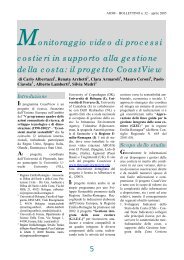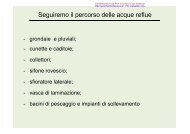The 21st Century climate challenge
The 21st Century climate challenge
The 21st Century climate challenge
You also want an ePaper? Increase the reach of your titles
YUMPU automatically turns print PDFs into web optimized ePapers that Google loves.
Box 1.2Millions are denied access to modern energy services1“Our day starts before fi ve in the morning as we need to collectwater, prepare breakfast for the family and get our children readyfor school. At around eight, we start collecting wood. <strong>The</strong> journey isseveral kilometres long. When we cannot get wood we use animaldung for cooking—but it is bad for the eyes and for the children.”Elisabeth Faye, farmer, aged 32, Mbour, SenegalIn most rich countries access to electricity is taken for granted.At the flick of a switch the lights come on, water is heated and foodis cooked. Employment and prosperity are supported by the energysystems that sustain modern industry, drive computers and powertransport networks.For people like Elisabeth Faye access to energy has a verydifferent meaning. Collecting wood for fuel is an arduous and timeconsumingactivity. It takes 2–3 hours a day. When she is unableto collect wood, she has no choice but to use animal dung forcooking—a serious health hazard.In developing countries there are some 2.5 billion people likeElisabeth Faye who are forced to rely on biomass—fuelwood,charcoal and animal dung—to meet their energy needs forcooking (fi gure 1.8). In sub-Saharan Africa, over 80 percent of thepopulation depends on traditional biomass for cooking, as do overhalf of the populations of India and China.Unequal access to modern energy is closely correlatedwith wider inequalities in opportunities for human development.Countries with low levels of access to modern energy systems figureprominently in the low human development group. Within countries,inequalities in access to modern energy services between rich andpoor and urban and rural areas interact with wider inequalities inopportunity.Poor people and poor countries pay a high price for deficits inmodern energy provision:• Health. Indoor air pollution resulting from the use of solid fuelsis a major killer. It claims the lives of 1.5 million people eachyear, more than half of them below the age of five: that is 4000deaths a day. To put this number in context, it exceeds totaldeaths from malaria and rivals the number of deaths fromtuberculosis. Most of the victims are women, children and therural poor. Indoor air pollution is also one of the main causesof lower respiratory tract infections and pneumonia in children.In Uganda, children under the age of five are reported to suffer1–3 episodes of acute respiratory tract infection annually.In India, where three in every four households in rural areasdepend on firewood and dung for cooking and heat, pollutionfrom unprocessed biofuels accounts for some 17 percent ofchild deaths. Electrifi cation is often associated with wideradvances in health status. For example, in Bangladesh, ruralelectrifi cation is estimated to increase income by 11 percent—and to avert 25 child deaths for every 1000 householdsconnected.• Gender. Women and young girls have to allocate large amountsof time to the collection of fi rewood, compounding genderinequalities in livelihood opportunities and education. Collectingfuelwood and animal dung is a time-consuming and exhaustingtask, with average loads often in excess of 20kg. Researchin rural Tanzania has found that women in some areas walk5–10 kilometres a day collecting and carrying fi rewood, withloads averaging 20kg to 38kg. In rural India, average collectiontimes can amount to over 3 hours a day. Beyond the immediateburden on time and body, fuelwood collection often results inyoung girls being kept out of school.• Economic costs. Poor households often spend a large shareof their income on fuelwood or charcoal. In Guatemala andNepal, wood expenditure represents 10–15 percent of totalhousehold expenditure in the poorest quintile. Collectiontime for fuelwood has signifi cant opportunity costs, limitingopportunities for women to engage in income generatingactivities. More broadly, inadequate access to modern energyservices restricts productivity and helps keep people poor.• Environment. Deficits in access to modern energy can create avicious circle of environmental, economic and social reversal.Unsustainable production of charcoal in response to rising urbandemand has placed a huge strain on areas surrounding majorcities such as Luanda in Angola and Addis Ababa in Ethiopia.In some cases, charcoal production and wood collection hascontributed to local deforestation. As resources shrink, dungand residues are diverted to fuel use instead of being ploughedback into fields, undermining soil productivity.Expanded access to affordable electricity for the poor remainsan overarching development priority. Current projections show thatthe number of people relying on biomass will increase over thenext decade and beyond, especially in sub-Saharan Africa. Thiswill compromise progress towards several MDGs, including thoserelating to child and maternal survival, education, poverty reductionand environmental sustainability.<strong>The</strong> 21 st <strong>Century</strong> <strong>climate</strong> <strong>challenge</strong>Source: IEA 2006c; Kelkar and Bhadwal 2007; Modi et al. 2005; Seck 2007b; WHO 2006; World Bank 2007b.up by some governments (chapter 3). In effect,the carbon budget is akin to a financial budget.Just as financial budgets have to balance spendingagainst resources, so carbon budgets haveto balance greenhouse gas emissions againstecological capacity. However, carbon budgetshave to operate over a very long time-horizon.Because the emissions that drive the accumulationof greenhouse gas stocks are cumulativeand long-lived, we have to set an expenditureframework that spans decades rather thanyears.<strong>The</strong>re are further parallels between financialbudgeting and carbon budgeting. WhenHUMAN DEVELOPMENT REPORT 2007/2008 45




